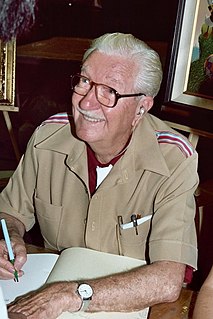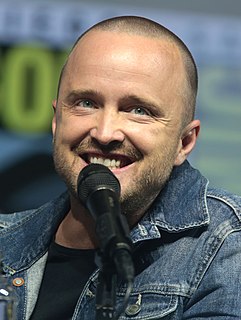A Quote by Laura Hillenbrand
Honestly, I expected to get a cold reception because of my subject matter. But when editors took a look at the story I had to tell, and saw that this was not a parochial story at all, they really warmed to it
Related Quotes
I honestly would tell anyone young to start looking at stories and learning story, because I think that’s the next step after people go, ‘OK, I’ve had enough of that improvisation, I’ve had enough of those short comedy bits. Tell me a story, tell me a more complex story, something that lasts and maybe has a little more meaning to it.’ Don’t ever look at what’s happening now; look at what’s coming next.
Vera said: 'Why do you feel you have to turn everything into a story?' So I told her why: Because if I tell the story, I control the version. Because if I tell the story, I can make you laugh, and I would rather have you laugh at me than feel sorry for me. Because if I tell the story, it doesn't hurt as much. Because if I tell the story, I can get on with it.
If everybody can author their own story, if media is democratizing because everybody can make a really good-looking website... that's the way we learn now instead of in books. It means that more people get to tell their own story in their own terms rather than having to go through publishers and editors and executives.
I think that people have to have a story. When you tell a story, most people are not good storytellers because they think it's about them. You have to make your story, whatever story it is you're telling, their story. So you have to get good at telling a story so they can identify themselves in your story.
It's only a story, you say. So it is, and the rest of life with it - creation story, love story, horror, crime, the strange story of you and I. The alphabet of my DNA shapes certain words, but the story is not told. I have to tell it myself. What is it that I have to tell myself again and again? That there is always a new beginning, a different end. I can change the story. I am the story. Begin.
I think that when I'm telling a story, I'm doing the best I can to tell the story as fully as I can, and if there are various fractures that happen in the story, then that's just the very thing that the story is as opposed to my looking for avenues of difference in one story. They just really do exist. For me, anyway.
The best time to tell your story is when you have to tell your story. When it's not really a choice. But then, when you get that first, messy, complicated version down, you have to read it over and be very tough on yourself and ask, 'Well what's the story here?' If you're lucky enough to have someone you trust looking over your shoulder, he or she can help you if [you] lack perspective on your own story.


































